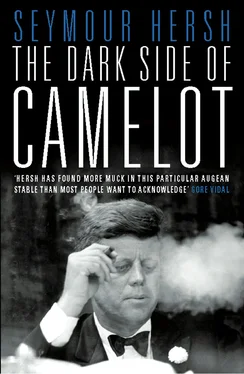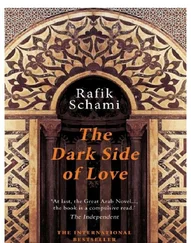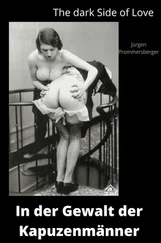At the time of Kennedy’s request, Clifford was working for the presidential campaign of Stuart Symington, a fact he immediately mentioned to Kennedy. “I thought he’d say that I can’t place you in the position of having this explosive information. He didn’t say that. He said, ‘I want you to go on representing me on this matter. Go ahead and work for Symington, but please continue on. If it becomes known, I’ve had it.’” Clifford added that he handled the incident until it got “to the point where I could turn it over to the Old Man [Joe Kennedy].” Clifford refused to say more about the matter, but did note that he made it a practice to have nothing to do with cash payoffs to women. “When it got into this area, I was never involved.” The issue did arise in one case, the lawyer added: “I told Jack that I was not the right fellow to handle it. And they turned to [James] McInerney.” Nothing more could be learned about the possible role of McInerney, who died in an automobile collision in 1963.
Further evidence of the threat posed by Alicia Darr emerged in yet another document in the FBI files, this one dated August 9, 1963, but not released in any form in 1977. Hoover warned Bobby Kennedy that some of the sealed documents in the Metrik disciplinary case were beginning to make the rounds of Kennedy enemies, who were depicting the documents as “dynamite” and an “H-bomb.” In July, Hoover wrote, the documents were offered by a “private detective” going by the name “Robert Garden” to Senator John G. Tower of Texas, a Republican who was on the Armed Services Committee and a strong supporter of Barry Goldwater for the Republican presidential nomination in 1964; Tower was told that the materials dealt with a vital national security matter. Tower sent his administrative assistant, H. Edward Munden, to New York to visit Garden and take a look. Munden told the FBI in an interview soon afterward that the papers dealt with an affair in the 1950s between Kennedy and a woman named Clark who had become pregnant sometime before Kennedy’s campaign for the presidency. There was also a letter from Clark to her attorney, the FBI summary said, that stated that “now that Mr. Kennedy had been elected President, ‘their’ position”—that is, Clark and Metrik’s position—“was much better.” Munden was told further during his New York visit to the private detective that there were additional documents and compromising pictures.
Munden, interviewed for this book in 1995, recalled that the subject of the meeting with Garden, which was obviously not his real name, was the 1964 election; the alleged detective, who made it clear that he wanted a large sum of money for the documents, was eager for Senator Tower’s help in getting information to the Republican Party for use in the presidential campaign. The documents, Munden told me, included “legal papers concerning an illegitimate child of President Kennedy. The mother was one of the Singers.” Munden, who had anticipated that the materials would deal with national defense or military issues, said he handed the materials back to Garden and told him that “it had nothing to do with the security of the United States.” Munden returned to Washington and described the bizarre meeting to Tower, who immediately telephoned the attorney general. “He told him that we had nothing to do with the information,” Munden told me. “Bobby thanked him and said he knew the rumor was out there.” He heard nothing further, Munden recalled in our interview, but there was no question in his mind that somebody wanted Barry Goldwater “to buy this material to blackmail Kennedy” before he ran for reelection in 1964. There was also no doubt, Munden told me, that Robert Garden, whoever he may have been, was convinced that his documents proved “that Kennedy had an illegitimate child” sometime in the late 1950s, although the documents he saw said nothing about a baby being born.
Alicia Darr Clark insisted in one of her interviews for this book that she had had no child out of wedlock by Jack Kennedy and would never have sought money from him. But in a 1997 telephone interview from Rome, Edmund Purdom, her former husband, said that the talk of a baby had a familiar ring. “She told me she was pregnant,” he said. “That’s why I married her [in 1957]. Of course,” Purdom added, “she never had any children.” Purdom, still involved in the entertainment business, was exceedingly bitter about his ex-wife, who is, he said, “a very dangerous woman” who has misrepresented many facts about her life and was always avaricious. He learned after their marriage, Purdom added, that his wife had been well known as a call girl among his friends in New York. Purdom said that in the early 1960s Simon Metrik told him, among other details, that he had “saved her from two police raids.” At the time of the rescue, Metrik told Purdom, Darr was actively running a call-girl ring in partnership with a woman from West Germany. “I’m not out to get her,” Purdom said, in concluding our conversation. “I’m out to forget her.”
Alicia Darr, known today as Mrs. Alicia Clark, breezily refused to discuss her past in detail in interviews for this book in 1996 and 1997, but she remained eager to talk about her relationship with the “beautiful and charming” Jack Kennedy. “I was one of his pals,” she said of John Kennedy, who was a congressman when they met. “I didn’t want to be a first lady. Believe me, he loved me. He knew me as a kid and loved me to the day he died. But I preferred to be married to a movie star. Why marry Jack and be stuck with Old Joe, and having to please him? John Kennedy,” she added, “was a spender. He’d buy you flowers, gifts. He told me he’d like to buy me diamonds, but he had trouble with his father, who was telling him he was spending too much money.” Darr insisted that he was willing to marry her, but she said no. “He was looking for me,” she told me. “I wasn’t looking for him. He was calling Rome. He wanted to run away from it all with me—to Europe, just to skip town. But I’d say, ‘Jack, you don’t have enough money.’”
Once safely in the White House, the young president did seem to be more than ever intrigued by her—or by the danger of being with her. Maxwell Raab, a Boston attorney who was secretary of the cabinet in the Eisenhower administration, found himself dancing with Clark at a British Embassy party in the early 1960s. President Kennedy suddenly entered the room, and Clark whispered to Raab: “I’d like to see the president. Dance me over to him. I know him very well.” Raab, recalling the incident in a 1995 interview, said he understood what “very well” meant.
The president was indeed delighted to see Clark, Raab said, and whisked her off. “I saw that I was not to be in this,” Raab said, “and so I walked away.” *
* The case attracted front-page attention even in the staid New York Times , which reported in August 1952 that Jelke, now deceased, had provided call girls to society figures and businessmen for fees ranging from $50 to $500. Alicia Darr’s name did not show up in newspaper accounts; it is impossible to determine what role she had, if any, in the scandal, or how the FBI concluded that she had been blackmailing some of the participants.
* In March 1996, the Supreme Court’s Appellate Division denied my request to unseal the Metrik and Friedman file. The request was initially opposed by Richard M. Maltz, the deputy chief counsel to the disciplinary committee of the Appellate Division’s First Judicial Department. In a memorandum dated April 11, 1995, Maltz noted that my argument had a “superficial appeal” because “there may very well be public interest in the type of information the applicant is seeking to uncover.” However, Maltz said he could not determine from the available files why “the Court sealed a record that would otherwise, as a public censure, be public.” Without such information, he added, the disciplinary committee had no choice but to oppose any proposed unsealing. As an alternative, he urged the justices of the Appellate Division to review the record, in camera , to determine whether the public interest would be served by unsealing. A year later, on March 8, 1996, the Appellate Division reviewed the files, deliberated on the issues, and denied my request in a one-page ruling.
Читать дальше












